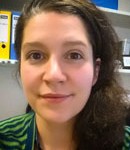 I know some of you might disagree, but I think that this is a really exciting time to be a Teaching Fellow in Newcastle University. Yes it’s also terrifying; for one there’s the impending TEF that us newcomers to Teaching and Scholarship are grappling to comprehend, and secondly the NSS is about to undergoing changes in terms of focus and scope. These are the big scary things that I, as a brand new Teaching Fellow, can do nothing about besides being forewarned and thus fore-armed to respond to the challenges as they arrive. Is it not just a little bit exciting though, that all these changes may serve to make a little room for new ideas to be hunted out and explored? I think so.
I know some of you might disagree, but I think that this is a really exciting time to be a Teaching Fellow in Newcastle University. Yes it’s also terrifying; for one there’s the impending TEF that us newcomers to Teaching and Scholarship are grappling to comprehend, and secondly the NSS is about to undergoing changes in terms of focus and scope. These are the big scary things that I, as a brand new Teaching Fellow, can do nothing about besides being forewarned and thus fore-armed to respond to the challenges as they arrive. Is it not just a little bit exciting though, that all these changes may serve to make a little room for new ideas to be hunted out and explored? I think so.
The Newcastle University Teaching and Learning Conference on the 14th March 2016 was the first pedagogic meeting I’ve had the pleasure of attending, let alone presenting at. The breadth and depth of teaching innovation going on within our University is astounding, maybe even a little overwhelming for a relative toe‑dipper like me.
It was grounding to hear Suzanne Chollerton set the context for all the endeavours discussed over the next few hours. Hearing Suzanne talk through the reasoning behind the planned 2017 NSS changes made a lot of sense, and allowed me for the first time to clearly consider what I could do as an individual to help raise the bar with regards to student experience.
Somehow the changes Suzanne highlighted seemed that little bit more manageable and less daunting as they were contextualised alongside the projects presented that day. Hearing TT Arvind from Law and Andrea Wilczynski from Modern Languages speak (sans PowerPoint!) about how simply revising a feedback form in response to student suggestions can have huge impact on the quality of student work was eye-opening and inspiring. Seeing two colleagues from very different backgrounds working so synergistically together was encouraging; both seemed to have learned so much from the practices of the other.
Another highlight for me was hearing Patrick Rosenkranz’s take on peer mentoring in Psychology with the aim of developing psychologically literate students by using student mentor groups to facilitate the transition from college to university environments. It seems so logical and natural with hindsight that students that have had such recent experience of the transition themselves would be the ideal candidates to support new learners make those same necessary adjustments. Patrick’s formal yet personal approach of assigning each new student to a mentor group is something that all disciplines could look toward implementing to instil a sense of belonging and accountability in students before they even arrive on campus.
My presentation was a short one based on some new digital blogging techniques I’ve been piloting to promote increased conation in Stage 3 students by encouraging peer to peer shared feedback. I felt supported and comfortably reassured by the audience I was presenting to, and was not at all made to feel like the pedagogic greenhorn I actually am. I was so incredibly grateful to have had the positive and reinforcing experience that I did at the Teaching and Learning conference, and I’m looking forward to following up with all my colleagues that were interested in my small but developing research niche.
At the very end of the day Lindsey Ferrie talked us through her vision for her Feedback Foghorn project. It was clear how unique approach toward collecting all student feedback into one dynamically mapped and accessible online tool would facilitate student reflection and assist in the feeding forward of comments and suggestions to future work. Furthermore, Lindsey’s presentation for me demonstrated how I might go about aligning my practice with the changes Suzanne eloquently outlined only hours prior.
It’s through events like this that the challenges of a changing student interaction dynamic and a move towards a more holistic learning environment will be addressed. I’m stoked to be right at the beginning of my own pedagogic adventure with so many brilliant avenues for engagement, reflection, digital learning and feedback being opened up and explored. Reflecting on the day as a whole I am enthused and emboldened towards really delving into own practice and finding out what works. I look forward to building a host of new tools and techniques with my similarly passionate colleague to address the inevitable challenges that are coming our way.
What’s not exciting about that?
Dr Sarah Jayne Boulton, School of Biomedical Sciences
